Interview with Industrial Designer Jude Pullen (UK)
I discovered Jude over at his work at Design Modelling so I asked him if he’d like to share how he got about becoming a recognized designer and he was kind enough to share some of his knowledge with me (and this blog).
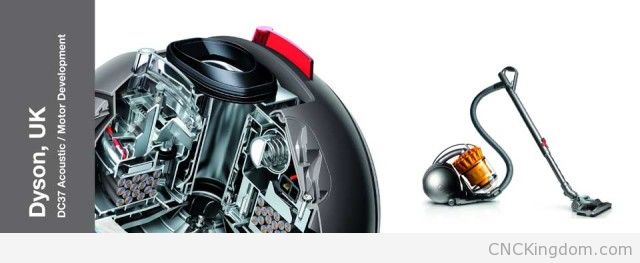
Jude, can you give me a little background about yourself and what is it about design that interested you from such a young age?
I am a Design Engineer, though my getting into design has been quite chequered. As A child I was always making things and wanted to know how stuff worked, but ‘Design’ was not made a very clear career option for me as a teenager, so I ended up studying Chemistry and then worked in a variety of jobs ranging from a Butchers to a Horticultural Specialist, but nothing felt right.
I had pretty poor grades at A-Levels (not helped by not knowing I was Dyslexic) so it took me a while to get my act together to study Product Design Engineer at Glasgow. From there I felt in my element and enjoyed doing work that I cared about.

You’ve won a number of awards and have a lot of design experience under your belt… what are some of the common threads throughout your life that have allowed you to enjoy so much success in the design field?
I did not have a lot of money at the time and so I had very strong reasons to apply for these awards, as any winnings from one award could be poured back into the project, for prototypes, materials, travel expenses and finally Patent fees. Through this cyclic process, what started out as a simple project started to have a lot of semi-professional aspects to it. I think having grown up around parent who were self-employed, this sort of ‘reinvestment’ has been a fundamental belief in terms of my professional and personal life.
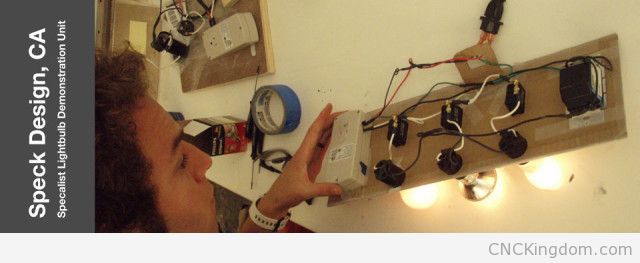
You’ve won a number of design awards that eventually lead you towards getting a job at Dyson… how did that all come about?
I think the James Dyson Award is a great boost to any project, in terms of PR and of course the financial backing. The timing is quite convenient in that you can enter the award usually just after you have submitted your final year project work. Though most people are pretty burnt-out at this stage – this is almost a test in itself to keep going even when you are pretty exhausted. As for the employment offer at Dyson – that was through meeting the then Head of New Product Development at my degree show, we got talking about the project but soon started discussing more abstract concepts, which at the time felt like an enjoyable digression, but I later see that many employers want people who can think laterally and see connections between disparate things.
I’m entirely self-taught but you were at the top of your engineering class at the university of Glasgow. Can you give me a little insight at how this formal education helped you?
In actual fact, I did not have the best grades in engineering, but the IMechE Medal for best project, to me seemed to acknowledge that it was the way I applied my learning as an individual to a completely different speciality like Medicine, which must have caught the judge’s attention. In many ways the definition of an Engineer is what you make it, regardless of how you acquired the knowledge. We need academics to progress the abstract technical theory, but arguably it is the synergy and application of these ideas that makes an impact on our lives. The responsibility is in making it a positive impact.
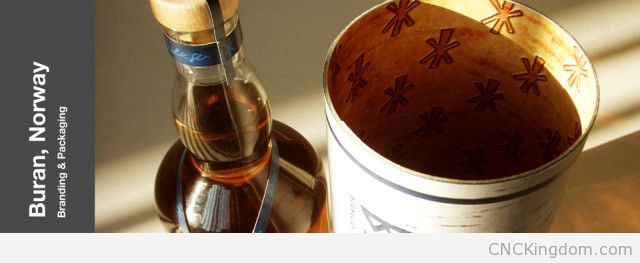
What kind of work do you do as a Design Engineer?
My working style has a large majority of it focused on delivering a specific task. This can involve doing research, building prototypes, CAD, testing, etc. However, I am a strong advocate in trying to find time to get involved with different people from different places. It may be from a specialist department within a company or an entirely different country or culture. It can be years before some of these experiences become relevant, but for me it is essential to have a creative ‘reserve’ of ideas and perspectives to draw on to inspire new concepts and solve problems. I often make a point of trying things that I think will be unfamiliar to me, as often their reaction (positive or negative) sparks something useful later on, that is worthwhile.
You have a number of side projects and I want to focus a bit more about your Design Modelling, how did that come about and what are your goals for that movement? (http://www.judepullen.com/designmodelling)
When I was young, Technic Lego was a brilliant birthday/Christmas present. However, in the times between those events, I realised I often wanted to construct things that were not able to be built from Lego, so turned to ‘junk modelling’, using cereal boxes, yoghurt pots, etc. Clearly this developed my dexterity and understanding of materials and properties, but at the time just seemed like fun. As mentioned earlier, it would be years before I realised I could get paid for doing something like this and it would be part of a recognised ‘design process’.
There are many speculations as to why junk modelling and things like it are arguably less common in people’s childhoods today, but as a result, it means that some people who are interested in design still need a bit of help with being able to create something in three dimensions, as oppose to sketching alone. Sketching can help refine an idea initially, but is clearly lacking feedback in aspects such as how it feels to use in a real-life situation.
I initially pitched the concept of Design Modelling’ at an event at IDEO, London – and got a huge amount of encouragement, even from people who I knew were already good at making things, but acknowledged that this would have helped them in the earlier stages of their design career. As well as the beginner’s tips, I do try and demonstrate a few ‘tricks of the trade’, which would appeal to someone who is more experience and in turn this encourages them to share tips they have known for years – and it is this community which I hope will create a new ‘movement’ that goes beyond Design Modelling as it is now.
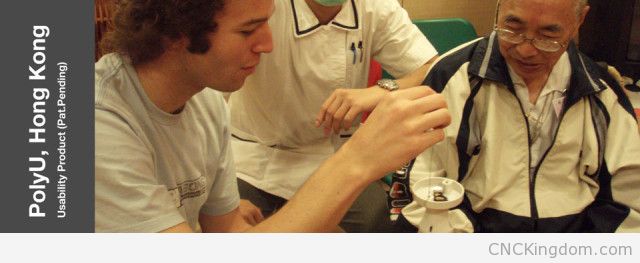
You’ve honestly had as many varied jobs as I have. Is this the path you’d recommend to others until they find their passion or do you think there is something to be said about doing something until you like it?
I’ve been fortunate to have had a second chance at studying Design, but it’s fair to say I really went for it, after messing up the first degree (Chemistry)! I do find that any success I have enjoyed has little to do with any stroke of genius and more to do with persistence and those who have helped along the way.
Arguably it is this ability to interact with different people, which has probably come from doing quite a few odd jobs over the years! I have been lucky to be allowed to persist in something that for a long time seemed fruitless, impulsive or possibly whimsical. Many people have great ideas, but various pressures and life commitments can disable them from giving something the time and thought it deserves.
For many people starting a ‘side project’ is the only way to explore what you want to do and still pay the rent, etc. I’d imagine that each generation has to deal with its own setbacks and opportunities, but that having a few people who believe in you and understand what you are trying to do, is a rare thing when you find it and even better when it’s mutual.
What are the software, material and hardware that you enjoy using the most other than cardboard to release your creative energies?
Having worked professionally for over 4 years now, I am of course comfortable in a variety of CAD packages and industrial processes, but I find that having a detailed and respectful relationship with the experts in a certain process is invaluable.
Four years is nothing really, in terms of professional experience, and although fresh out of University one feels anything is possible – it is humbling to realise you will only get there with the collaboration with others.
If you take Heatherwick Studio as an example, clearly the machinists are doing things they never thought possible and the output is unique, but it has come from a respectful, but aspiring collaboration between experts and designers pushing the limits. Being a Design Engineer – almost by virtue of its twined title – allows one to infiltrate the creative and the practical, the craft and the cutting edge. It’s often bewildering, but certainly an exciting place to be.
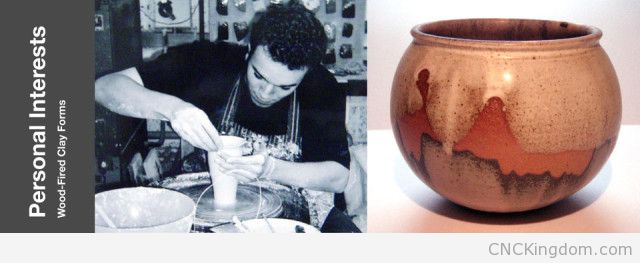
Anything else you wish to add?
One nice story from my year in Norway, was from when I was taught by a rather eccentric Finnish tutor, who announced early on in the class that we would all get ‘B’ grades at the end of the module. At first people looked bewildered – so he expanded on this, saying – the better students among you will not fail as a result of getting a B rather than an A, and the poorer students among you will excel as a result of one good grade.
He continued to say that what really mattered was what we honestly thought it was worth (either to us or the intended recipient of the product) and that we should know if it was worthy of merit (i.e through peers, market competition, etc). We should be confident in what we created, but humble in what could be done better.
From the time he ‘saved’ grading us, the only thing he would offer us as a ‘Tutor’, was to give as constructive critique based on his experience, inspiration when at a block and contacts to take an idea as far as possible.
You can find Jude at http://JudePullen.com
